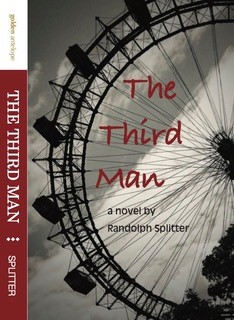Testament, a debut by English author Kim Sherwood, is a novel about truth — and the crippling effect its opposite has both on those who produce and endure it. The story centers on twenty-four-year-old Eva Butler and her grandfather, Holocaust survivor and famous British painter Joseph Silk, born Jószef Zyyad. Eva’s present-day search to uncover her grandfather’s history and understand his evasiveness about it alternates with a third-person narrative of Jószef’s experiences as a young man. The horrors of the Holocaust are undeniable for the survivors in this story, but it is the various ways in which they handle this truth afterward that build much of the novel’s tension. Framed by questions from an actual questionnaire completed by Holocaust survivors in Hungary in 1945 (“No. 1: the number on your tattoo”), this poignant story of a Jewish family from Budapest expands into Central Europe and beyond — from Theresienstadt to the Lake District of England, from Sajmîste in Yugoslavia to the Jewish Museum in Berlin.
As a teenager, Jószef enlists in a labor battalion, as his mother believes this will provide her son’s only chance to survive. After a brutal year underground in the Bor mines in Yugoslavia, József emerges into daylight with diminished eyesight, the result of a beating. His literal change in vision mirrors the warped reality of his world, and his inability to clearly see his place in it; ultimately, he uses his altered vision to create paintings. Some of Sherwood’s most poetic passages address the theme of art, as when Jószef encounters Lyonel Feininger’s painting Old Stone Bridge, “suffused with blues, throbbing with a dimensionality he could walk into.” His future as a painter is sealed as he realizes that “there is a world, a language, in which he can live.”
His past too painful to accept, József rejects it and cultivates a new persona. He becomes someone born in London after the war. He adopts an anglicized name, Joseph Silk, and rationalizes his discarded past: “If being Jewish means no home or one home or home with yellow papers, means Yiddish or English or Hungarian but not all three, means … apologizing to the man in the street, means a long story, means hyphens, means searching for a new way to be a chosen people, a new way to be European in exile, a new way to be — then wouldn’t it be easier … to simply not be Jewish? To be simply British.”
Eventually Silk requests that the testament he provided as Jószef in Budapest after his liberation from Gunskirchen be destroyed. Erroneously assuming his wish granted, he glides along in his new role as suave artist, serial philanderer, neglectful parent — and doting grandfather. Silk contrasts with his brother László, who retains his Jewish identity after equally harrowing experiences and ultimately emigrates to Israel. László feels that his older brother has shamefully repudiated their shared past. At one point Eva remembers, as a child, overhearing an argument between her grandfather and great-uncle, and later asking Silk, “What’s a camouflage Jew?”
Pieces of the truth are gradually revealed throughout the novel. The reality is often hurtful, as when Eva realizes that her adored grandfather has deceived her by withholding crucial parts of his past, or when a young mother — a survivor of Theresienstadt — faces the fact that with her “shriveled heart” she cannot love her infant son. Yet occasionally the exposed truth in Testament is beautiful, such as when the identity of a grave’s caretaker — the plot thousands of miles from home — comes to light. There is also the profound truth of memory, which Jószef considers after being moved by the music of a rare concert: “He forgets the guards at the door as colour drops into the black loneliness … so that he can see the room better than ever before: there are no walls that matter, no barbed wire, only the truth that what once filled his mother’s living room can still exist here, no matter how the world inverts itself.”
Testament also explores themes of abandonment, love, and redemption, all of which are present in the fractured relationship between Silk, Eva, and John, Silk’s son and Eva’s father. The effects of the Holocaust have rippled outward, damaging people generations removed from the survivors. At the novel’s close, Eva muses about her slowly mending relationship with her father: “We live in different lands. We only share a border. But haven’t some of the most extraordinary events in human history occurred on borders?”
Writing about the Holocaust within a fictional context combines the challenges of fact-checking with the creation of realistic and engaging characters to inhabit this dark period. That Sherwood has elevated this story to lyrical beauty — a written portrait as gorgeous as Silk’s perpetual Blue Period paintings — is testament to her abilities as both storyteller and historian.
Amy Spungen, a freelance editor and writer, has a BS in journalism from Virginia Commonwealth University and an MA in English from Northwestern University. She lives near Chicago in Highland Park, Illinois.





